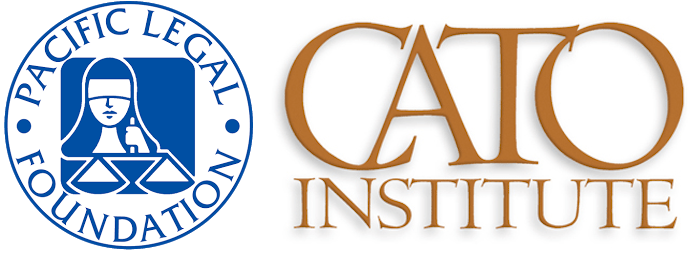 The fight to legalize sports betting in New Jersey is far from over with the issue now resting in the hands of the Supreme Court. So while everyone waits with baited breath on whether the highest court in the land hears the case or not, those on the ‘pro’ side of the lawn received strong support from two well-reputed institutions: The Cato Institute and the Pacific Legal Foundation.
The fight to legalize sports betting in New Jersey is far from over with the issue now resting in the hands of the Supreme Court. So while everyone waits with baited breath on whether the highest court in the land hears the case or not, those on the ‘pro’ side of the lawn received strong support from two well-reputed institutions: The Cato Institute and the Pacific Legal Foundation.
The Cato Institute, an American libertarian think tank based in Washington D.C., and the Pacific Legal Foundation, a libertarian public interest law firm based in Sacramento, have both filed an amicus brief showing their support of the state’s bid to have its protest heard by the Supreme Court regarding the federal court ruling that sided with the “anti” crowd that wants to uphold the constitutionality of the Professional and Amateur Sports Protection Act.
In their brief (read here), which was first brought to attention by Fort Lauderdale sports law attorney Daniel L. Wallach, The Cato Institute and the Pacific Legal Foundation raised two important if not rhetorical questions regarding the PASPA. The first question asked whether PASPA’s “prohibition on state licensing or authorization of sports wagering commandeer the regulatory authority of the States, in violation of the Tenth Amendment” while the second question touched on whether PASPA’s “discrimination in favor of Nevada and other exempted States violate the fundamental principle of equal sovereignty”.
Not surprisingly, both the Cato Institute and the Pacific Legal Foundation already have their interpretations to these questions, particularly highlighting that as per the US’ constitutional structure, “no state may be treated differently from any other state absent compelling circumstances”, and thus, the federal government has to respect equal sovereignty among these states. At the heart of that is making the distinction between local issues and national issues, with the former being handled within the state and the latter entrusted to the US Congress.
If Congress dictates state-specific policies, rather than adopting general rules that are national in scope, voters will be less clear about whom to hold accountable for those policies’ failure,” the brief added.
The two libertarian institutions also highlighted how the fundamentality of PASPA “undermines the democratic process at a state level” by having the power to “directly regulate the ability of states to change their own laws”.
“PASPA’s prohibition on gambling in only some states stands in stark contrast to the growing disagreement between the states and the federal government about the best approach to address marijuana criminalization.”
Evidently, The Cato Institute and the Pacific Legal Foundation are taking the side of Gov. Chris Christie, not so much because they specifically want to see New Jersey’s bid to legalize online gambling in the state, but to point out that PASPA doesn’t have the authority to pick and choose which states can and can’t legalize sports betting.